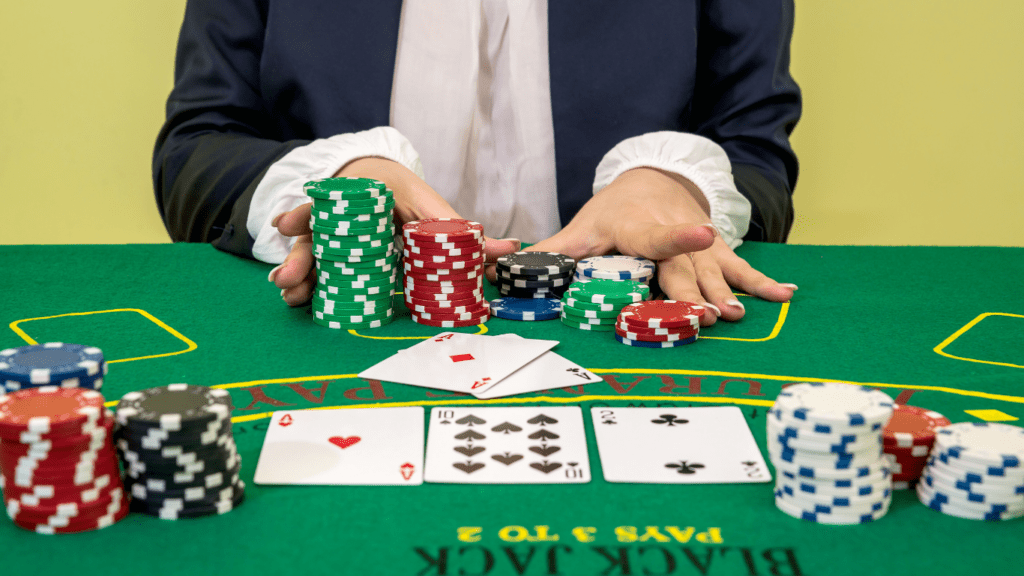High-stakes gambling has always fascinated me. The idea of risking millions on a single hand of cards or the spin of a roulette wheel feels both thrilling and almost incomprehensible. What compels someone to put so much on the line? It’s not just about the money—it’s about the adrenaline, the allure of winning big, and something deeper rooted in human psychology.
Understanding High-Stakes Gambling
High-stakes gambling is a unique phenomenon driven by a combination of:
- psychological
- emotional
- social factors
Exploring its underlying dynamics reveals why some individuals are willing to wager extraordinary amounts.
Defining High-Stakes Gambling
High-stakes gambling refers to betting activities involving significant financial risks, often exceeding tens of thousands or even millions of dollars per wager. Casinos, private poker games, and online gambling platforms host these activities. Participants, often referred to as high rollers, typically have access to substantial financial resources and seek experiences beyond ordinary gambling.
The risks in high-stakes gambling elevate the stakes of emotional engagement. For many, the challenge, exclusivity, and heightened consequences distinguish it from lower-tier betting. Notably, this form of gambling commonly takes place in VIP or private settings, designed to cater specifically to affluent individuals.
The Allure of Risk and Reward
The risk-reward dynamic is a central driver of high-stakes gambling behavior. Risk introduces uncertainty, which heightens emotional arousal and makes the potential for massive wins—or losses—intensely stimulating. Studies show that the brain’s dopamine system activates in response to anticipation, reinforcing the appeal of gambling despite the odds.
Winning large sums delivers not only financial gain but also a psychological rush, amplifying feelings of accomplishment and validation. Conversely, the potential for significant losses doesn’t deter these gamblers as much. For some, the emotional highs from the process of gambling itself outweigh the fear of losing valuable assets. This allure often positions high-stakes gambling as an experiential pursuit rather than purely financial.
Psychological Factors Behind High-Stakes Gambling

High-stakes gambling involves psychological complexities that impact decision-making and emotional engagement. These factors drive high rollers to take extraordinary risks, even when faced with potential losses.
Thrill-Seeking Behavior
The desire for intense excitement pushes many gamblers toward high-stakes scenarios. The unpredictability of massive bets activates the brain’s reward system through dopamine release, creating a sense of euphoria. High rollers often chase this exhilaration, finding the volatility of large wagers more satisfying than smaller, less impactful bets. This pursuit of adrenaline mirrors traits seen in extreme sports enthusiasts or risk-oriented professionals.
Cognitive Biases and Decision-Making
Several cognitive biases influence high-stakes decisions, clouding rational judgment. Loss aversion can make gamblers reluctant to walk away after losing heavily, compelling them to wager more in hopes of recovery. The illusion of control leads them to believe that their strategies, rather than chance, determine outcomes. Additionally, the sunk cost fallacy drives players to continue betting to justify prior losses, reinforcing a cycle of risky behavior.
Emotional Triggers and Escapism
- For some, gambling fulfills emotional or psychological needs that extend beyond financial rewards.
- Stress, anxiety, or unresolved personal issues often act as triggers for high-stakes gambling.
- The immersive nature of gambling offers a temporary escape from reality, numbing negative emotions with the high of the game.
- Others seek validation or status, as winning significant sums in exclusive settings can evoke a sense of power and social prestige.
The Role Of Social and Environmental Influences
High-stakes gambling behaviors don’t occur in isolation; they’re shaped by social interactions and environmental settings. These factors subtly or overtly impact decision-making, amplifying the thrill and compulsion to bet large sums.
Peer Pressure and Status
Social circles play a significant role in high-stakes gambling. Among affluent individuals, gambling with peers often serves as a direct measure of status. High rollers frequently engage in competitive betting to assert dominance, demonstrate financial power, or maintain a desired image within elite groups. For example, matching or exceeding a peer’s multimillion-dollar wager can become an unspoken requirement for social validation.
The influence of social comparison can’t be ignored. Observing others successfully place high-value bets can create a psychological pull toward mimicking their behavior, even when it contradicts better judgment. Public acknowledgment of wins or resilience in losses further reinforces this cycle, making peer interactions a critical influence in gambling decisions.
Casino Design and Gambling Triggers
Casino environments deliberately exploit psychological triggers, enhancing players’ willingness to engage in high-stakes betting. Lavishly designed private rooms, exclusive VIP areas, and personalized services foster a sense of privilege, isolating gamblers from external distractions and normal financial considerations. The absence of clocks and subdued lighting manipulates time perception, encouraging prolonged gambling sessions.
Subliminal cues also play a role. The sound of slot machines, the sight of jackpots, and celebratory reactions to large wins stimulate excitement, increasing the likelihood of taking larger risks. For high-stakes gamblers, tailored gestures like dedicated concierges or free luxury perks act as psychological rewards, subtly encouraging repeat risky behaviors.
The Impact of High-Stakes Gambling
High-stakes gambling leaves significant and measurable effects on financial stability and mental health. These impacts extend beyond the gaming tables, influencing various aspects of a gambler’s life.
Financial Consequences
Losses in high-stakes gambling often reach staggering amounts, with some individuals facing millions of dollars in debt. This financial fallout sometimes leads to bankruptcy and strained relationships. Gamblers pursuing losses—commonly referred to as “chasing”—may exhaust wealth reserves without rational consideration of future consequences.
Asset liquidation becomes a frequent outcome, where properties, luxury items, or investments are sold to recover gambling losses. For example, seasoned gamblers have been reported liquidating real estate assets or high-value collectibles to maintain their gambling aspirations. Financial instability also affects businesses owned by gamblers, contributing to workforce cuts and diminished operations.
Mental Health Implications
High-stakes gambling correlates with heightened psychological strain, including anxiety and depression. The emotional stress of significant losses often generates feelings of guilt, helplessness, or shame, clouding judgment and fostering a cycle of continued betting.
Sleep disorders frequently accompany mental health challenges, particularly when gamblers experience constant alertness from elevated stress levels. Substance abuse, such as alcohol or stimulant use, also emerges as a coping mechanism to mitigate the overwhelming emotions associated with financial pressures.
Risk of gambling addiction skyrockets due to the intense thrill-seeking behavior involved. Pathological gambling patterns can lead gamblers to neglect personal relationships and responsibilities, further deepening emotional distress. In extreme cases, individuals may face severe outcomes like suicidal ideation, particularly when compounded by isolation and financial ruin.



 Mark Buxtononics is the Senior Betting Analyst at Gamble Time Hub, bringing sharp analytical skills and a deep understanding of betting markets to the forefront. Specializing in data-driven insights and predictive analysis, Mark delivers in-depth evaluations of sports betting trends, odds movements, and strategic plays. His work helps readers make smarter, more informed decisions across a variety of betting platforms. With a commitment to clarity and accuracy, Mark plays a key role in establishing Gamble Time Hub as a reliable source for expert betting knowledge.
Mark Buxtononics is the Senior Betting Analyst at Gamble Time Hub, bringing sharp analytical skills and a deep understanding of betting markets to the forefront. Specializing in data-driven insights and predictive analysis, Mark delivers in-depth evaluations of sports betting trends, odds movements, and strategic plays. His work helps readers make smarter, more informed decisions across a variety of betting platforms. With a commitment to clarity and accuracy, Mark plays a key role in establishing Gamble Time Hub as a reliable source for expert betting knowledge.

